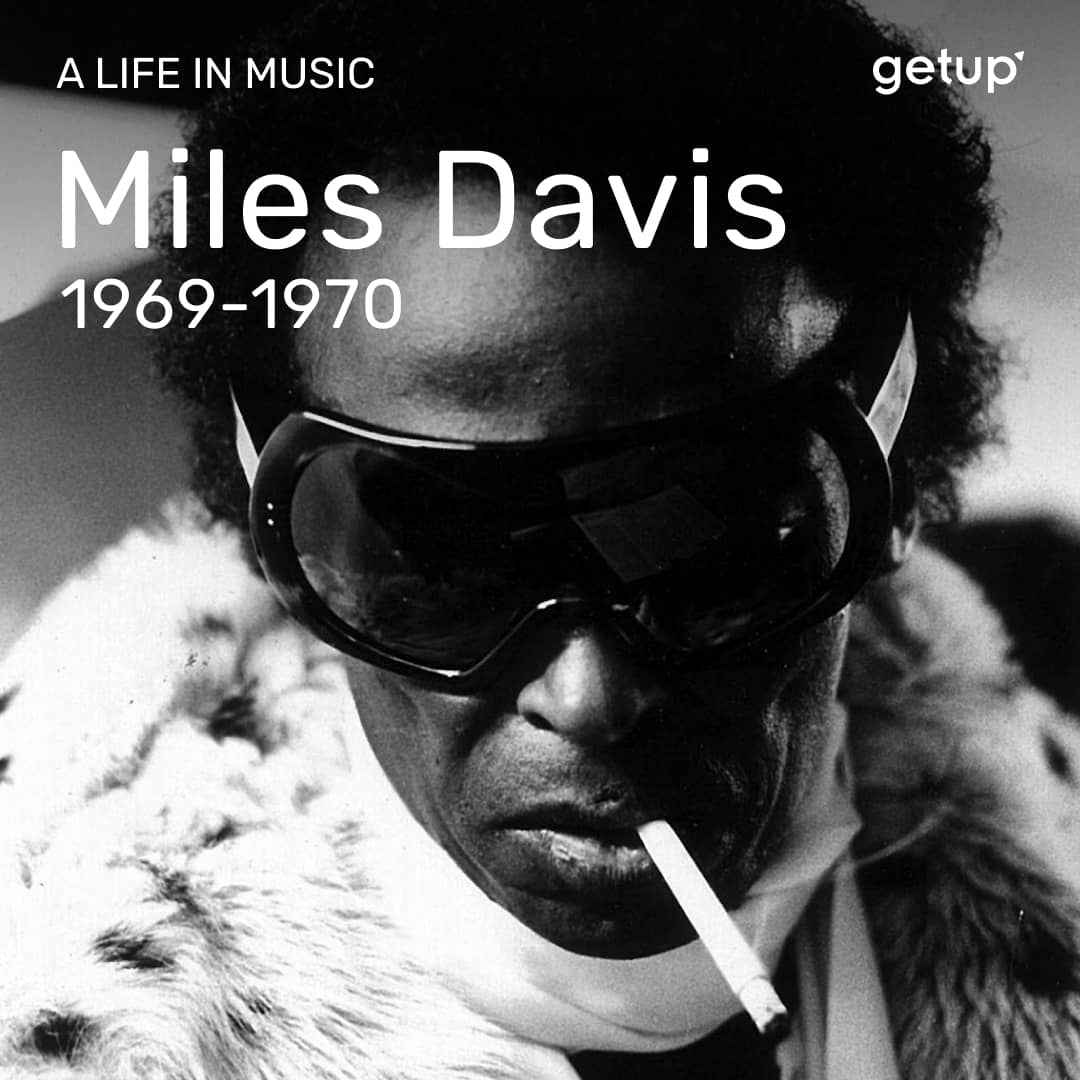With the explosion of pop and soul music, jazz was losing ground and Davis no longer had as much power to negotiate fees with his record company. He couldn’t stand the fact that long-haired white guys were playing the blues and being praised for it. He felt the tide turning and started looking for a new sound: ‘Through listening to James Brown I was moving towards the guitar.’
It was time for a revolution, the type that would see our man of cool sounds move towards electricity, powerful rhythmic beats, psychedelic covers and eccentric clothing. Had he sold his soul in order to maintain his lifestyle and feed his ego?
Miles was no copy cat. Rather than making any sudden changes he let his sound mature with subtle and thoughtful integrations, in step with his magical intuition. With In A Silent Way (1969), he got rid of jazz’s chord framework in favour of pastoral music reduced to a few simple melodies, repeated in different ways. In this feverish jungle atmosphere, belonging neither to jazz nor to rock, he was laying the foundations of what would go on to be called ambient music.
The recordings became collective improvisation sessions, conducted by Davis and then recomposed in post-production by Teo Macero. During this period our sound wizard expanded his orchestras and brought together a large number of important musicians: John McLaughlin, a young English blues guitarist, Dave Holland on bass, Joe Zawinul on organ, and Chick Corea on electric piano. Tired of not being able to improvise like a madman, Tony Williams left after In A Silent Way, and was replaced by Jack DeJohnette. The double album Bitches Brew was recorded in three days in August 1969. According to Teo Macero the atmosphere of the album was the result of a fight: ‘In my opinion, Bitches Brew owes its power to a violent argument I had with Miles about my secretary. He wanted me to fire her but I had no intention of doing so [...] And the more it went on, the more we were yelling – we almost beat each other up in the studio.’ A jazz-rock masterpiece, Bitches Brew sold half a million copies. This was followed by a series of mystical gems with sitar and tabla (“Recollections”).
Davis gradually changed course, solidifying his music, going deeper and deeper into the famous groove that obsessed him. For him, only funk could be authentically Black, with blues being vampirised by white people. Hooked by Hendrix’s Band of Gypsys, he recorded “Right Off” in April 1970. It all started with a boogie improvised by John McLaughin on guitar, Michael Henderson (Stevie Wonder’s former bassist) and Billy Cobham on drums. Simply by entering the studio Miles was jumping on that bandwagon. Red light.
Herbie Hancock stopped in and was given the worst keyboard in the world: a farfisa. Davis played with Keith Jarrett and Hermeto Pascoal on the ethereal “Little Church” recorded in June 1970. But after the miracle of Bitches Brew, Miles was to suffer nothing but commercial failure. The public didn’t get it, and Miles was in a bad way. Dressed as a pimp, he was consuming disturbing amounts of cocaine and alcohol. The next few years were to be an unparalleled artistic ascension, but also a veritable descent into hell. Miles was losing it.



.jpg)
.jpg)
.jpg)